“Made in Nottingham.” Every time I get in my boat, I see that simple statement and think about the “other” British invasion: contemporary fiberglass sea kayaks. Our first sea kayaks were a Valley Avocet and a P&H Vela; today we paddle an SKUK Pilgrim and a Valley Avocet LV — smaller boats that didn’t exist when we began paddling ten years ago.
In a world of mass-production, sea kayaks are still hand made, one at a time, in small shops by skilled workers. So although Nottingham is a bit off the path from Chicago to Wales, we had to stop by and see where my boat was made.
Valley was launched by Frank Goodman in 1970. Back then, Valley was a single-building operation, where first the Anas Acuta and then the Nordkapp were produced (both contemporary versions of traditional Inuit boats). One of the young men he hired to work in the shop was Jason Buxton, who had begun kayaking as a kid. Buxton, who went on to do whitewater and sea trips and to become a member of the British freestyle kayaking team, worked at Valley for about 10 years before moving to Pyranha. Nine years ago, Goodman retired and sold Valley to Buxton and Peter Orton, also a member of the freestyle team, a slalom racer and a fan of all things fast, who was designing boats for P&H.
Today, Valley is comprised of three main buildings, where the fiberglass and carbon/kevlar boats are made, the polyethylene boats are finished (they are made off-site), designs are refined, and completed boats are wrapped to await shipping. Valley’s 20 full-time employees produce as many as 175 boats per week in the summer–the busiest season–including the North Shore line of sea kayaks Valley bought and updated, and the Big Dog line of whitewater boats it launched in 2009 “under cover of darkness.”
That story exemplifies the close-knit and competitive nature of British sea kayak manufacturing. Not only have most of the people involved worked with or for one another over the years; they’re also fiercely protective of their innovations. Buxton, Orton and Andy Whiting intended to surprise everyone with the launch of their new line of whitewater boats. But they had to test paddle the boats and refine the designs before the launch. So they took their evolving designs out only before dawn and after dark, hoping to avoid being seen by other paddlers in the business; when they did occasionally spot someone, they hastily paddled away. “When we make something new, Pete and I try it first,” Buxton says. “We want our boats to be the best. We want the next thing to be better.”
Today, Big Dog has earned a place in the British whitewater kayak market. And Valley’s other boats continue to evolve. North Shore has been reinvented; Valley’s long-time polyethylene boats have been improved by triple-layer construction and a truer-to-mold shape; and Valley has launched surf and fitness boats.
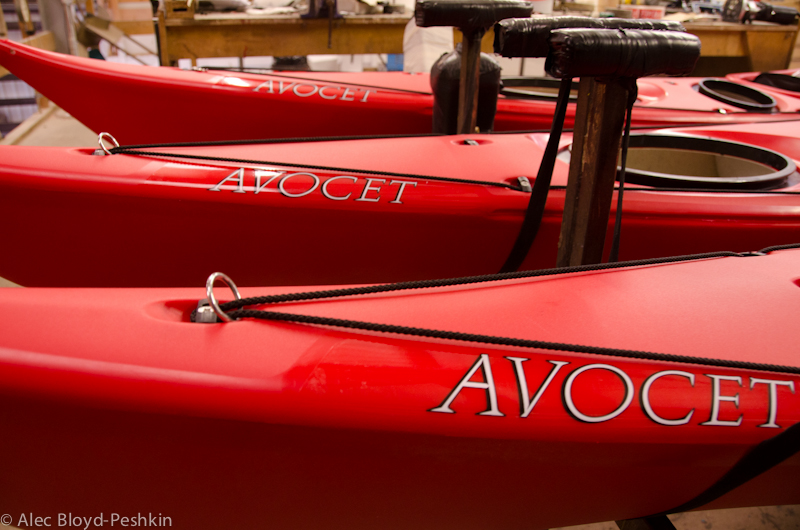
The newer polyethylene Avocets have crisper lines and are truer to the size of the Avocet, not the LV.
How does one stay excited about designing and building kayaks for so many years? Buxton, who’s been in the kayak business all his working life, explains it this way: “It’s the kind of thing we enjoy: being around the people who use them. It’s quite nice to create something. I can’t see myself in an office in a shirt and tie.”
Valley has great workplace stability, too. Employees tend to stick around (or in some cases, leave and come back). It’s not unusual for them to work for Valley for more than 20 years. “We’ve lost more to retirement than anything else,” says Buxton, who now employs some of his former co-workers. “They’re passionate about what they do.”
What’s next for Valley? Buxton and Orton have plans, but they’re not telling. “When you’ve got such a history, anything you change is looked at twice as hard,” he says. “We’ll do what we do best and quietly test it, and the world will see it when we’re ready.”
So keep your eyes open after dark and before dawn on the waters around Nottingham.
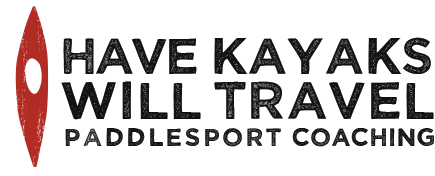

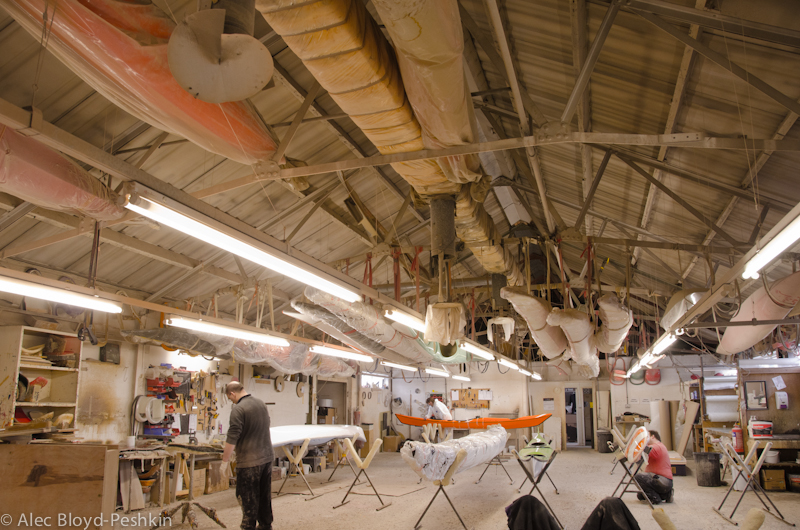
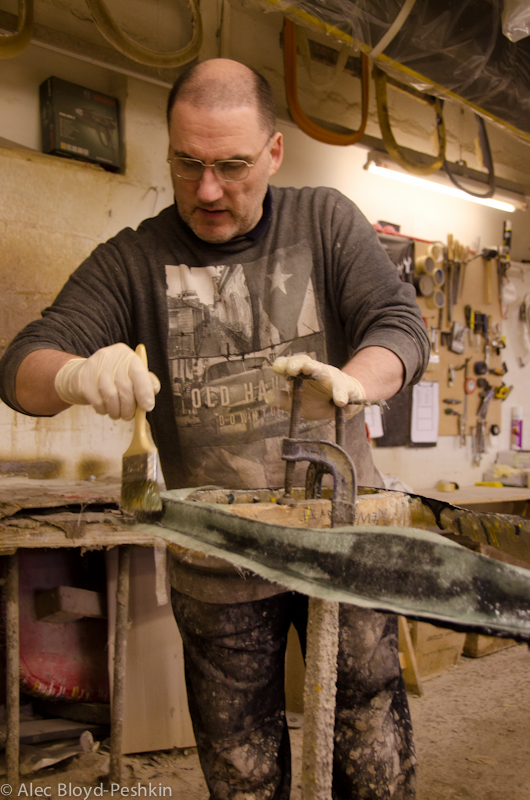
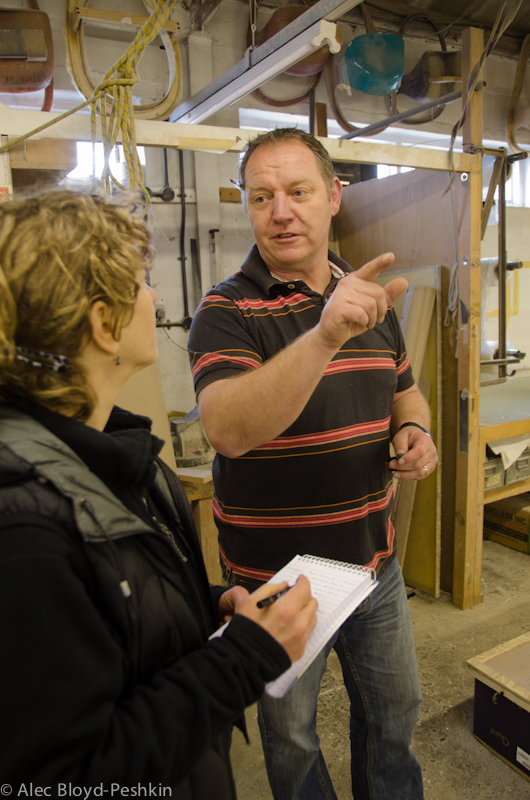
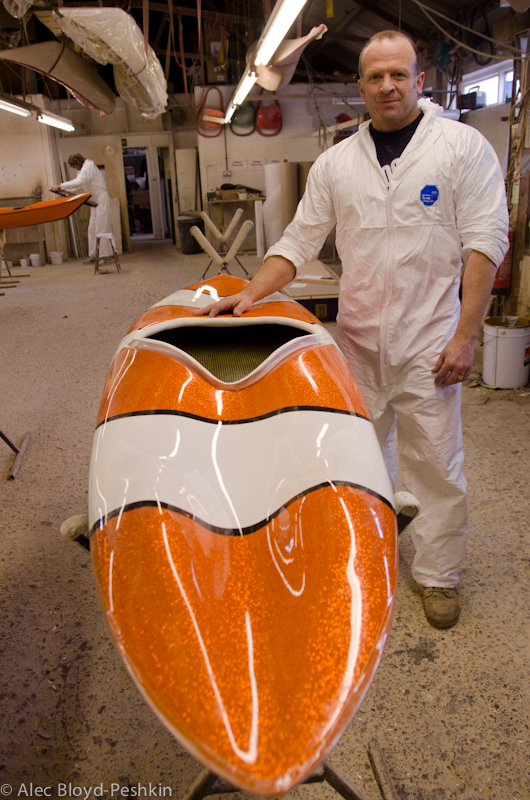
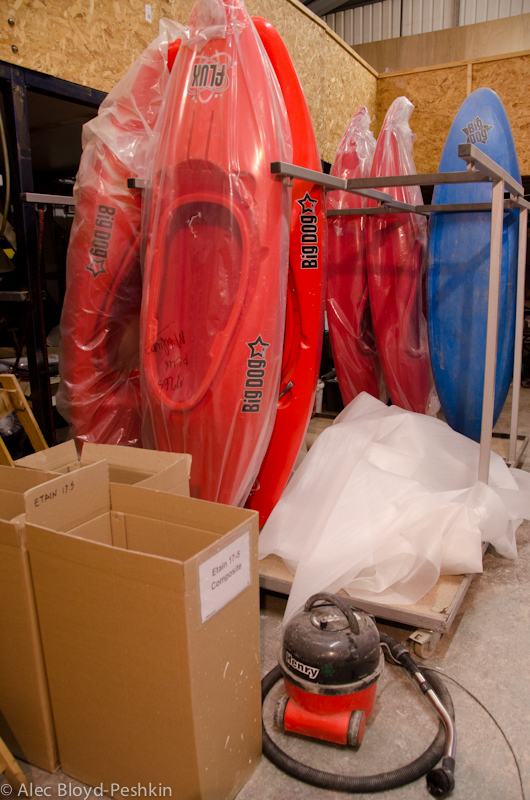
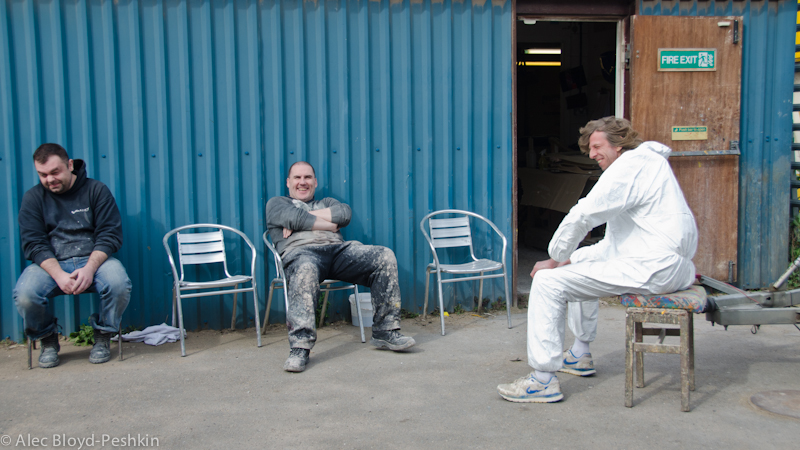
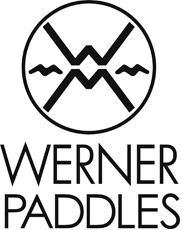
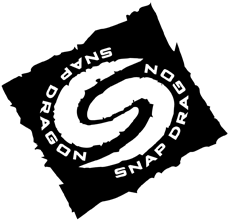
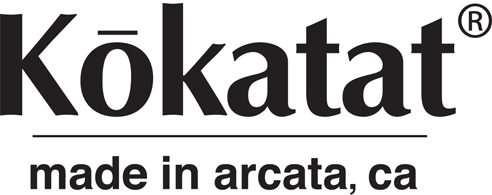



Nice to read about the people behind the boats. Thanks for the insider’s view.
“Under the stars of Wales
Cry multitudes of arks!”
Dylan Thomas
Good to see where modern day arks are crafted. Thank you.
Despite my love of the Tiderace line – there is much to be said about the traditional build methods employed at Valley Kayak.
I once got a “tiger striped” Nordkapp LV – and sold it when I thought my joints would no longer let me paddle. Well, now I am paddling again and can’t wait to get my hands on the Nordkapp Forti the guys are building now as I write this.
Guys – feel free to “go artistic” on my Nordkapp!
Scott